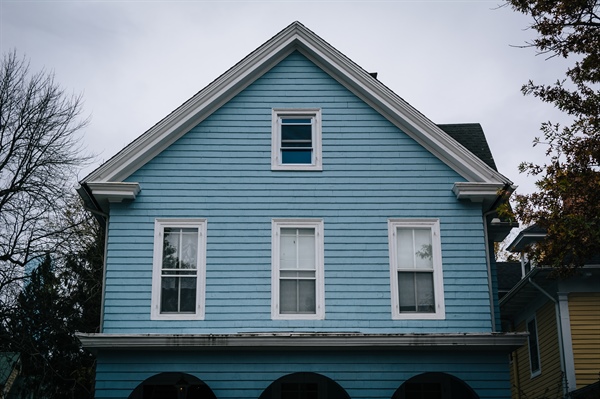Signs You Need Siding Replacement in the Twin Cities

As a Twin Cities homeowner, the integrity of your home's exterior is crucial to both its appearance and functionality.
Siding, in particular, plays a vital role in protecting your home from Minnesota's harsh weather conditions. Over time, the siding on older homes can exhibit a range of issues, from fading and cracking to more severe problems like rot and insect damage. Recognizing the signs that your siding needs replacement is essential to maintaining your home's value and energy efficiency.
In this article, we'll explore several key aspects of siding maintenance and replacement. Each of these topics will be covered in depth to ensure you have all the information needed to make informed decisions about your siding.
Common Issues with Siding in Older Twin Cities Homes
Older homes in the Twin Cities often face several common siding problems that can compromise the structure's integrity and aesthetic appeal.
Weather extremes, from freezing winters to humid summers, can cause siding materials like wood or vinyl to warp, crack, or fade. Moisture infiltration is a frequent issue, leading to mold growth and rot, particularly in wood siding. Without timely intervention, these damages can escalate, necessitating extensive repairs or complete replacement.
Another prevalent issue is improper installation or aging materials that no longer provide adequate insulation, thus increasing energy costs. It's crucial for homeowners to periodically assess their siding's condition to prevent these typical aging symptoms from developing into major concerns.
For a thorough examination and expert advice, consulting with vinyl siding specialists can ensure your home remains both beautiful and functional.
Manifestations of Insect Damage and Rot in Siding
Insect damage and rot are significant concerns for Twin Cities homeowners, particularly in wooden siding.
Termites and carpenter ants can silently deteriorate siding, leaving behind tiny holes or tunnels, which are often only noticed when substantial damage has already occurred. Rot tends to follow where moisture has penetrated the siding, causing the wood to soften and crumble, a process that accelerates in shaded, damp areas.
Visual signs of these issues include discoloration, a powdery residue on the surface, and wood that feels spongy to the touch. Catching these signs early can save homeowners from more severe damage, highlighting the importance of regular inspections.
To address such problems, it's wise to consult siding experts who can evaluate the extent of damage and recommend appropriate solutions.
Assessing Whether to Repair or Replace Your Siding
The decision to repair or replace your siding depends largely on the extent of the damage and the age of the siding itself. Minor issues like small cracks or loose pieces can often be repaired without the need for a full replacement. However, if you notice widespread damage, such as large cracks, signs of rot, or extensive fading, replacement might be the more cost-effective and long-term solution.
Replacement becomes particularly necessary when concerns arise about underlying structural damage or when the siding fails to provide adequate insulation and protection against the elements. In such cases, new siding can significantly enhance your home’s energy efficiency and curb appeal.
It's essential to assess each situation carefully, considering both the immediate costs and the long-term benefits of replacement.
Impact of Siding Damage on Home Insulation and Energy Costs
Damaged or deteriorating siding can have a profound impact on your home's insulation and, consequently, on your energy bills.
Gaps, holes, and cracks in the siding allow heat to escape during the winter and cool air to seep out during the summer, leading to higher heating and cooling costs. Furthermore, moisture that penetrates through compromised siding can degrade the insulation, reducing its effectiveness and potentially leading to mold growth and air quality issues.
Updating your siding can, therefore, not only improve the appearance of your home but also its energy efficiency. This makes siding replacement a worthwhile investment for enhancing comfort and reducing long-term energy expenses.
Quick Visual Inspection Tips for Siding Health
Conducting regular visual inspections of your siding can help catch potential issues before they become severe.
Look for signs of wear and tear, such as cracking, chipping, or fading. Pay special attention to areas near gutters and downspouts where water damage is more likely to occur. Check for any loose or warped panels that might indicate improper installation or moisture issues.
Additionally, inspect the siding for any fungal growth or discoloration that could indicate moisture problems. Using a screwdriver, gently probe the siding at various points to check for soft spots, a sign of rot. Regular inspections and timely repairs can greatly extend the life of your siding.
For more detailed assessments, consider reaching out to Twin Cities General Contracting, who specialize in comprehensive siding solutions.
How Twin Cities General Contracting Can Help with Your Siding Needs
At Twin Cities General Contracting, we understand the unique challenges homeowners face with siding in our climate.
From common issues like cracking and warping to more severe problems such as insect damage and rot, our team of experts is equipped to handle all aspects of siding maintenance, repair, and replacement. We offer a comprehensive range of siding solutions tailored to protect your home and enhance its energy efficiency.
Whether you need a quick repair or a complete siding replacement, our detailed assessments and high-quality materials ensure that your home not only looks great but also stands strong against the elements. We focus on delivering solutions that not only meet your immediate needs but also contribute to the long-term health and efficiency of your home.
Don't let siding issues compromise the comfort and safety of your home. For a no-obligation quote, request one today to discuss your siding options or schedule a detailed inspection with our experts. Call us at 763-258-3904 to get started.